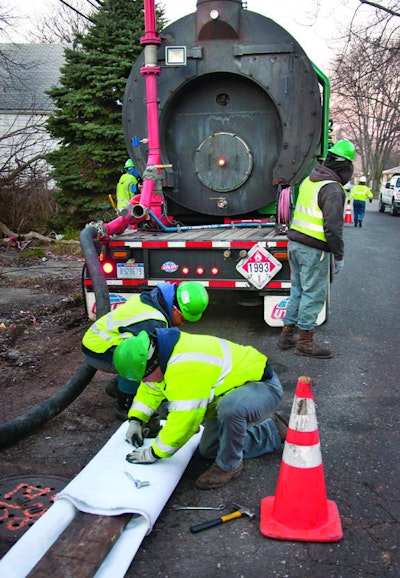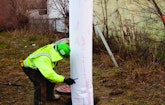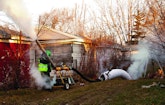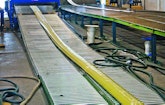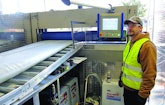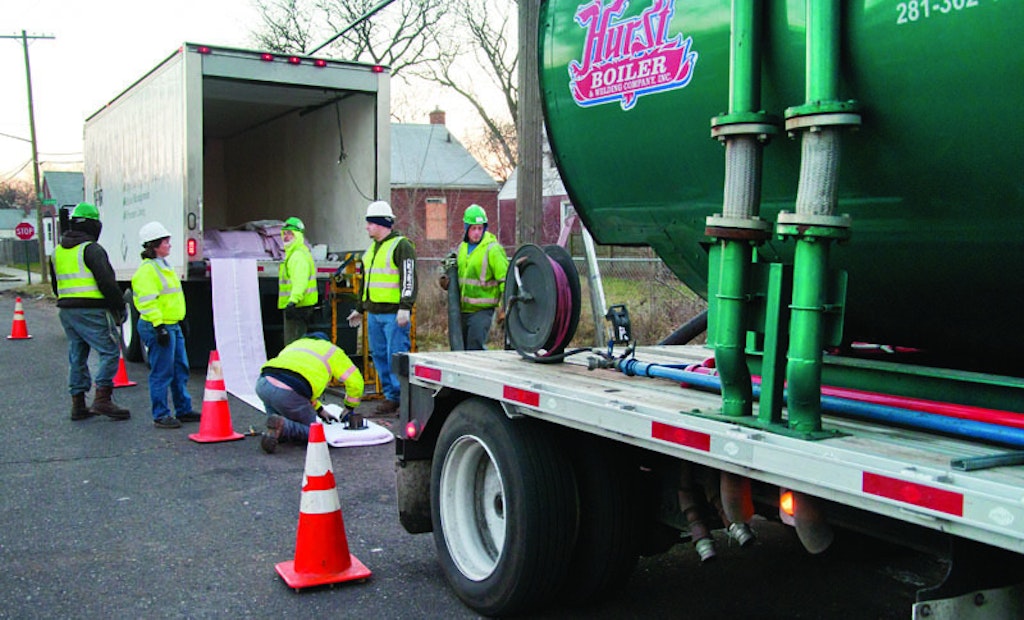
Interested in Municipal/Industrial?
Get Municipal/Industrial articles, news and videos right in your inbox! Sign up now.
Municipal/Industrial + Get AlertsWhen aging sewer lines in Detroit and the surrounding area begin to fail, Inland Waters Pollution Control, a division of IPR, is one of the first calls utility officials make … especially if the problem is complicated.
For Joe Cutillo, president and chief executive officer of IPR, the nation’s largest privately held trenchless solutions contractor, IWPC is a model for all of its operating divisions across the United States.
“As a trenchless contractor, IWPC represents the perfect blend of experience, customer service and technology in its tool chest to be able to provide multiple options to solve our customers’ problems,” Cutillo says. “And, if we aren’t constantly seeking better and more cost-effective solutions, then we aren’t doing our job.”
Walter Rozycki, senior project manager at IWPC, often serves as the point man when utilities in an eight-state region need help with failing sewers. IWPC is based in Detroit but serves a region that includes Ohio, Pennsylvania, Tennessee, Indiana, West Virginia, Virginia and Maryland. (Several of those states are being moved to a new division the parent company is forming to serve New England and the Northeast.)
IWPC’s main focus is pipe relining and pipe rehabilitation, and Rozycki says the company offers a variety of services that allow it to tailor the solution to the problem, age and construction of the sewer lines that need repair. IWPC offers IPR’s proprietary EcoCast geopolymer cementitious spincast lining for pipes 36 inches and up (as well as manholes and large storm sewers), sliplining, CIPP lining (liner materials supplied by Applied Felts), and chemical and cementitious grouting. IWPC also does sewer inspection, spot repairs and cleaning.
Even though IWPC concentrates on sewer lines, the Detroit operation is also a licensed installer for RS Technik’s RS BlueLine CIPP for water mains and force mains. RS Blueline has been certified to meet NSF/ANSI Standard 61 for drinking water.
Pipelines of all sizes
Although some of IWPC’s most notable work is done on large sewer lines up to 12 feet in diameter, Rozycki says the company also does a lot of work on smaller lines. “We have contracts with the City of Detroit to do all of their CIPP work. There is a lot of 8-, 10-, 12-inch stuff and we are working on lines all the way up to 60 inches. We’ve got over 1 million feet of CIPP installed in Detroit.”
To keep pace with the Detroit contracts and other projects, IWPC has seven lining crews normally comprised of seven people each. If an out-of-town project or a large-diameter sewer requires the use of special on-site wet-out equipment, the lining crews can expand to as many as 10 people.
IWPC also has seven television/cleaning/grouting crews with four to five people each.
And the Detroit operation has a fleet of 12 jet-vac trucks — supplied by both Vac-Con and Guzzler — each operating with a two-man crew.
IWPC operates its main wet-out plant in Detroit with a staff of 10 people. Other members of the Detroit team include seven mechanics who maintain the company’s trucks and equipment as well as 14 people on the office staff, including Rozycki.
Equipping the crews
To equip its lining crews, IWPC assembles its own trailers equipped with large, specialized boilers, and equips its crews with portable wet-out tables to handle the scale of the material they are installing. The Detroit operation equips boiler trailers for its own crews as well as for the other divisions of IPR across the country. Some of the trailers offer crews the capability to cure by steam or water. IWPC’s mechanics also design and supply their division and the rest of IPR with the specialized installation trucks required for application of EcoCast linings.
For television inspection and grouting work, IWPC crews operate trucks assembled by either Telespector, a company based just outside Detroit, or CUES, an Orlando-based company. Rozycki says most of the company’s liner tap-cutting equipment is purchased from CUES.
Since IWPC’s work is primarily done in northern states, the crews are also equipped with large tents to enclose the working area and maintain the proper conditions for wet-out of CIPP liners. Climate control for impregnated CIPP liners is important, and when IWPC crews are working in another state, the company has a fleet of refrigerated trucks and trailers deliver the liners to the work site while maintaining a constant temperature to prevent them from curing. On site, the material is then inverted and applied and cured by either steam or water.
Century-old sewers stand strong
Since many of the cities in the region IWPC serves are older, Rozycki says his crews often find themselves working in sewer lines up to 100 years old or more. But he says the older brick sewers are not necessarily the lines that are failing.
“The thing that’s surprising is that many of the older, larger-diameter sewers that were built of brick are in better shape than the concrete sewers you first started seeing in the 1940s and ’50s,” he says.
Rozycki says brick-lined tunnels were better able to withstand the flow of wastewater, while early concrete sewers proved susceptible to substances in the waste stream. Hydrogen sulfide has been a key factor in the degradation of concrete sewers in many locales.
The IWPC manager says one reason early concrete and clay sewers began to fail was the early degradation of joint sealant material that allowed for increased infiltration and root intrusion. The brick sewers were continuous and didn’t have that kind of problem.
“It’s really surprising how these bricks have almost become polished from the wastewater or stormwater flowing through them,” Rozycki says. “They have really stood up over time.”
Staying safe underground
With much of its work performed in large pipelines, IWPC faces the added challenge of training and equipping its employees for the hazards of working 100 feet underground. Much like mine operators, Rozycki says, “We have to abide by all confined-space entry regulations set by OSHA.”
IWPC conducts its own safety training program to comply with OSHA regulations and other industry standards. The training focuses on the work environment as well as the operation of specialized equipment used by company employees.
Often, the training offered to IWPC employees goes beyond government requirements.
“Our people are trained in sewer rescue and first aid skills, similar to what you would teach a first responder,” Rozycki says. “Because in some communities, even the local first responders aren’t trained to go that deep underground and enter the sewer.”
In addition to the safety skills that come with IWPC’s regular training program, employees are equipped with all the proper safety equipment, from quick escape air bottles with breathing masks to life preservers on every employee in a flowing sewer.
Custom-fit solutions
IWPC sometimes serves as the construction manager for large sewer rehabilitation projects, overseeing the work of multiple contractors. When a contract calls for services IWPC does not normally handle, it will first turn to its sister divisions to handle some jobs.
Within IPR’s national network, IWPC can provide a myriad of additional trenchless services not normally performed in its region. These include: pipe bursting, water bursting, and spiral-wound pipe and culvert rehab, just to name a few. So when a job calls for that type of service, it only takes a phone call to secure an experienced and qualified installation team to perform the task.
Because of the great variance in the age of the systems his company works on and the unique challenges of geology, infrastructure and construction in each system, Rozycki says IWPC can’t take a one-size-fits-all approach to the business.
“We often handle projects that are unusual,” Rozycki says. “We are solution providers. We can be a one-stop deal, if that is what the customer wants. We can do everything from the initial investigation to final remediation.”
